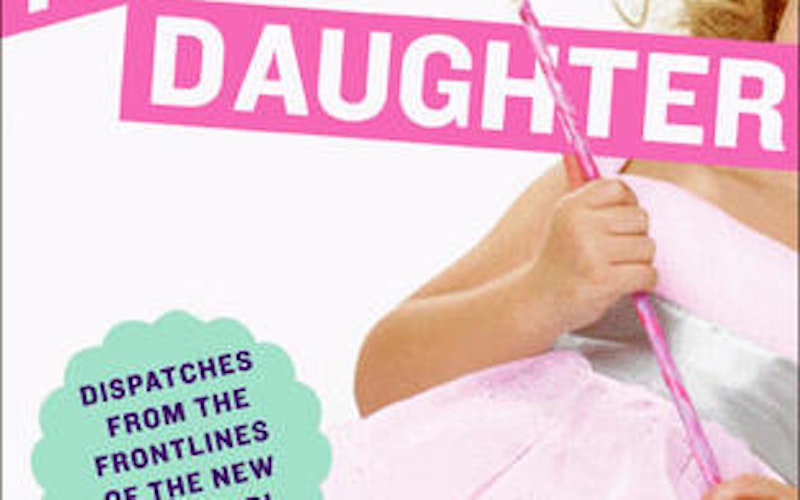
Culture At Large
Biblical heroines and Cinderella culture
“I’m a princess,” my 4-year-old daughter proudly declared.
“OK, princess,” I happily obliged, not thinking much about her royal proclamation because, after all, she is a girl. And everyone knows little girls are princesses.
But I started to second guess myself when I stumbled across Peggy Orenstein’s new book, "Cinderella Ate My Daughter." I wondered if my tiara-wearing, tutu-dancing girl wasn’t necessarily a natural thing, but rather a product of a marketing ploy. Orenstein asserts that the roughly 26,000 Disney princess items on the market - a staggering $4 billion-a-year franchise - are a catalyst for making little girls grow up faster. These sweet princesses eventually trade in their cute frilly dresses for sexier ones and start trying to dress like Miley Cyrus or Paris Hilton. Their magic wands are replaced by Bratz dolls, makeup and anything “sassy.” With so much pressure to be princess perfect, a girl’s developing self esteem can suffer, sometimes leading to things like eating disorders and depression.
All of this starts with classic princess stories. Pick any story and it has almost the same plot. A beautiful girl (who is very thin) is in dire need for help (because she can’t possibly help herself). A handsome prince comes along and not only rescues her but loves her. He doesn’t fall head over heels for her because she’s smart, witty and independent. No, he loves her because of her outward beauty.
That’s a pretty powerful and absolutely unobtainable message. Are we setting our girls up for failure and low self esteem because they will never be the fairest, thinnest and prettiest of them all? And are we robbing them of any sort of independence and confidence to think and act on their own?
I do think there is a real battle over our daughters’ self esteem. And I think there might be some truth to Orenstein’s claims. But I also think there is a giant gaping hole in this argument. Our daughters were not created in the image of a perfect little princess. Rather, they were created in the image of God - a heavenly Father who loves them, imperfections and all.
And that’s what we should be teaching them every single day. Raising strong, confident girls is not something to be taken lightly. So it’s a good thing we have Biblical examples of true beauty. Two of my favorites are Deborah and Esther. They were each clever, cunning and beautiful. Esther not only saved her cousin Mordecai from certain death, but all the Jews in her Kingdom. It was no easy task, but she was willing to risk her own life for her people. Deborah was a prophet and a noble and wise judge. She told Barak if he took his men to fight Sisera, God would give them victory. Even with Deborah’s reassurance, Barak was still fearful and insisted that Deborah go to battle with him. She did and Sisera was defeated. But it wasn’t by some muscular manly warrior, but rather a brave woman named Jael. It was Deborah, not Barak, who was the real leader of the people. These brave, smart women who were chosen and used by God are the complete opposite of any fairy tale.
I’m also the mother of two boys, so I think debunking the princess myth needs to be taken a step further. I want my boys to learn that the image-obsessed girls in advertisements and on TV aren’t realistic or healthy images of girls. These aren’t the images that God paints for us in the Bible. Girls are so much deeper and can be so much more than pretty faces. Each was born with God-given gifts and talents and her true beauty cannot be determined simply by how she looks or what she wears.
I’m not going to pack up my daughter’s tutus and tiaras anytime soon. I think they are good for her imagination. But I will admit, I am more wary about her desire to be pretty and frilly all the time. I want her to feel beautiful, confident and strong - all at the same time. And it’s my challenge as her mother to give her positive role models and outlets that can enhance her self esteem by developing and honing her God-given gifts. And at the end of the day, when I help her put away all her jewelry and dress-up clothes, I pray that she will fully understand that she was wonderfully and fearfully made. And that not even her light-up glass slippers could make her more beautiful.
Read contributor Cathy Smith's follow-up post for TC: "Kids, gender and how we're losing the middle."
Topics: Culture At Large, Arts & Leisure, Books, Theology & The Church, The Bible, News & Politics, Social Trends, Home & Family, Parenting